The Adverse Childhood Experiences (ACE) Study, conducted by Dr. Vincent Felitti and his colleagues, is one of the most frequently cited bodies of research when it comes to discussing the healthcare impact of violence in its various forms. I talk about it frequently when I teach and consult, but I realized I didn’t actually have a central place for people to get information on the ACE Study and its multiple publications, so without further delay, a new Clinical Guide.
CDC’s ACE Study main page: The CDC funded this study, and their website contains one of the most comprehensive resources for abstracts and full-text articles from the ACE Study. Make this your 1st stop. It splits out the literature by health issue, too, so it’s well-organized.
(NEW) Updated list of ACE Journal Articles by Topic
(NEW) ACE Presentation Graphics
Academy on Violence and Abuse ACEs Best Practices: “This document is the product of an ongoing collaboration between the Academy on Violence and Abuse (AVA) and the National Health Collaborative on Violence and Abuse (NHCVA). It is intended to assist healthcare professionals and others who wish to integrate knowledge of adverse childhood experiences into patient care and other activities (e.g., education, human services, and justice).”
ACE Study Infographics, part of the Veto Violence website on child maltreatment and public health.
The ACE Study Homepage: Although no new research subjects are being accepted, you can calculate your own ACE score (PDF) here.
The Relationship of Adverse Childhood Experiences to Adult Health: Turning Gold into Lead (PDF) V. Felitti. This paper provides a nice overview of the issue for all of us who treat adult patients. It’s older (2002), but it’s still relevant.
Adverse Childhood Experiences and the Lifelong Consequences of Trauma (PDF, American Academy of Pediatrics). This is one of several documents in AAP’s Trauma Toolbox for Primary Care. Worth perusing the complement.
Chicago Safe Start: They have a 6-part archived presentation by Dr. Felitti
YouTube Interview with Dr. Felitti (approx. 70 min. long)
Survivors of Adverse Childhood Experiences Choosing the Nursing and Forensic Nursing Profession – A Study: Published in the Winter 2010 edition of On the Edge, by C. Brogan, et al., this article specifically looks at the impact of adverse childhood experiences on our profession.
Assessment for Lifetime Exposure to Violence as a Pathway to Prevention (PDF) by L. Chamberlain (February 2006). This paper takes information from the ACE Study and its ilk and synthesizes it nicely. From VAWNet: “This document provides a brief overview of the research on lifetime exposure to violence and the long-term health consequences of violence. It also examines how assessment for lifetime exposure to violence can create a pathway to prevention.” Very clinically applicable, with screening questions and other resources.
Related articles:
J Adv Nurs. 2013 Dec 11. doi: 10.1111/jan.12329. [Epub ahead of print]. Adverse childhood experiences: towards a clear conceptual meaning. Kalmakis KA, Chandler GE.
Schafer, M. & Ferraro, K. (2012). Childhood misfortune as a threat to successful aging: Avoiding disease. The Gerontologist, 52(1), 111-20. (FREE FULL-TEXT)
Check out this article on ACEs in the lives of sexual offenders and a related blog post over at PreventConnect
Note: There are a huge number of free full-text publications available online from Dr Felitti and the ACE Study. There’s no excuse not to know the fundamentals of this study well if you take care of any type of forensic patient.

1 reply on “Clinical Guide: Adverse Childhood Experiences”
Other useful resources:
ACEsTooHigh.com is a news site that covers research and practices based on ACE- and trauma-informed concepts. It also has a place to calculate your ACE score, with an explanation of what it means, and an accompanying resilience factors survey.
ACEsConnection.com is the companion social network — with more than 1,100 members so far — that has a plethora of resources (toolkits, best practices, presentations) plus about 10-15 new summaries and links to ACE-related news, research, and reports.